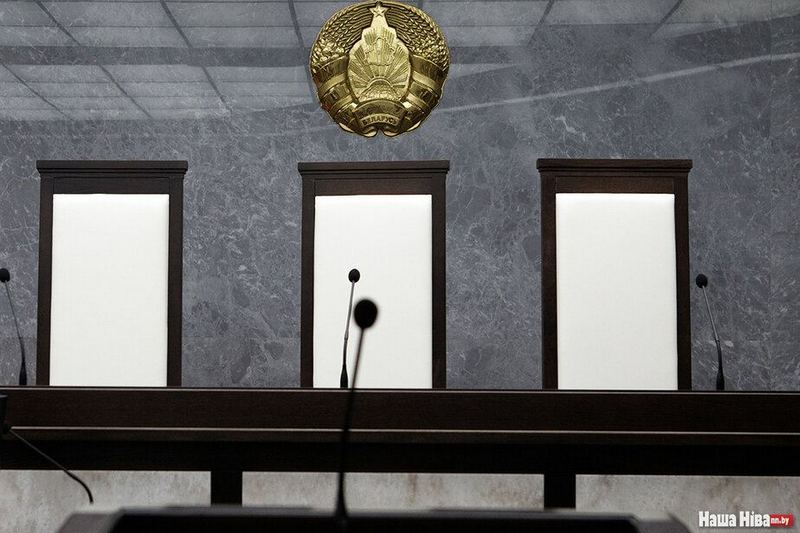First Belarusian journalist convicted “in absentia” to 12 years of prison
Having considered the case of “Black Book of Belarus” in separate proceedings, Minsk City Court passed a sentence on the defendants. Among those tried in absentia was Dzmitry Navosha, a former correspondent of the Pressball newspaper and co-founder of Tribuna.com and Sports.ru portals. He and four other defendants were sentenced to 12 years in prison and a fine of $7,300.

The criminal case involves five people – Dzmitry Navosha, Yanina Sazanovich, Daniel Bahdanovich, Valeryia Zaniamonskaya, and Volha Vysotskaya. None of the defendants were present at the trial, all are now safe outside Belarus.
Judge Natallia Buhuk convicted them to 12 years in prison and a huge fine. She is notable for holding political trials of other journalists. Buhuk sentenced Belsat TV channel correspondents Daria Chultsova and Katsiaryna Andreyeva to two years in prison and former National TV presenter Dzmitry Luksha to four years of imprisonment.
The defendants in the “Black Book of Belarus case” were charged with inciting social enmity and unlawful acts in relation to personal data. All of them were accused of running a Telegram channel that published the personal data of people snactioning and using violence against regime opponents during the 2020 protests.
According to the prosecution, Dzmitry Navosha, Yanina Sazanovich, Daniel Bahdanovich, Valeryia Zaniamonskaya, and Volha Vysotskaya clanned into a “criminal group” that created various Internet resources. The main purpose of their activities, according to the indictment, is “discrediting and inciting social enmity towards the authorities and law enforcement agencies, spreading defamatory information about them, and inciting extremist crimes.
“Information about the private life and personal data of hundreds of individuals was illegally collected and made public due to their professional activities. Among them are internal affairs officers, prosecutors, judges, and journalists. Some publications caused crimes to be committed against them, including destruction and damage to property and threats of violence,” the official indictment reads.

The Investigative Committee of Belarus began the “separate proceedings” in late September 2022. The State Security Committee included the defendants in the “list of persons involved in terrorist activities,” while the Interior Ministry accused them of extremism.
The “separate proceedings” is a legal know-how of the Belarusian regime, which has little to do with justice. The defendants were assigned lawyers at the decision of the prosecution, but no defendant received any communications from their counsels. Also, the defendants were not provided with an opportunity to present any arguments (even via video link).
When sentencing someone in absentia, the authorities have no leverage to send virtual “criminals” behind bars. Nevertheless, based on last year’s radical changes in the legislation, the convicted “in absentia” may be deprived of the property they possess in the country and of their Belarusian citizenship.
According to human rights defenders, Belarusian citizens can now be tried in absentia under 48 “extremist” criminal articles. The considerably amended law gives free rein not only to prosecutors and judges, but also to the agencies responsible for sequestering the property of nationals who left the country against their will.
Meanwhile, on January 17, a similar trial in the so-called “Coordinating Council case” began at Minsk City Court. Politicians and democratic activists Sviatlana Tsihanouskaya, Pavel Latushka, Maryia Maroz, Volha Kavalkova, and Siarhei Dyleuski are on the virtual dock. Charges include creating an extremist formation, organizing mass riots, high treason, inciting enmity, conspiracy to seize power, and encouraging sanctions.
 @bajmedia
@bajmedia
